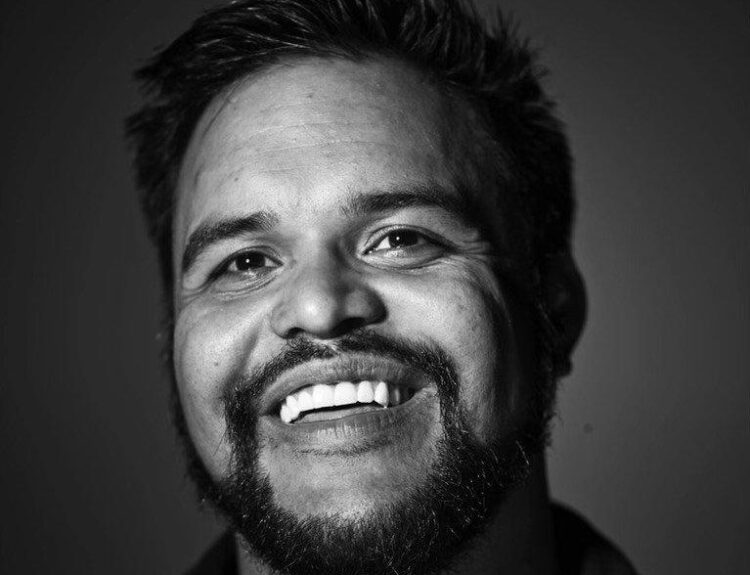By Abby Pang
Lawyer – Simpson, Thomas & Associates

Motor vehicle accidents can be overwhelming, especially if you are seriously injured. Whether the accident is major or minor, there are steps you can take to protect yourself and your legal interests. An experienced Vancouver lawyer can help guide you through the process. Here are our top 10 things to do following a motor vehicle accident:
1. Remain at The Scene: Never drive away from the scene of an accident without stopping, even if it seems minor.
2. Stop Safely: Bring your vehicle to a stop in a place not blocking the road, if possible to move it safely. Otherwise, leave your vehicle where it is and get yourself and your passengers to safety.
3. Check for Injuries: Check yourself and your passengers for injuries. If you are not too injured, check on the well-being of the occupants of others involved in the accident such as the driver and passengers of the other vehicle, a pedestrian, or cyclist.
4. Call for Help: Call 911 if anyone is injured, if the accident has caused significant damage to vehicles or property, if the other driver leaves the scene without exchanging information (a hit-and-run), or if you have any other concerns (for example, the other driver seems intoxicated or is refusing to provide insurance information).
5. Get the Other Driver’s Information: Key pieces of information to obtain are the other vehicle’s licence plate number; the other driver’s full name, phone number and driver’s license number; and the other driver’s insurance details, including the name of the registered owner of the vehicle. Write it all down—or better yet, take pictures with your phone to preserve the information.
6. Take Pictures of the Scene: Photographs can be invaluable to proving your claim. Take pictures of the resting position of the vehicles, any visible physical injuries, damage to vehicles, and any noteworthy aspects of the accident scene (for example, an obscured traffic sign, broken streetlight). Ask one of your passengers or a bystander to do it for you if you are too injured.
7. Gather Witness Information: If there are witnesses, get their full names and contact information. Evidence from an independent witness about how the accident occurred or what happened at the scene may be needed later, and will typically carry a lot of weight in a personal injury claim.
8. Document the Accidentas Accurately as Possible: In addition to photos, take notes about how the accident happened and any details of note (e.g. time, weather or lighting conditions). Draw a sketch of the scene if you are unable to take pictures. Be accurate in what you say to the police and the other driver, and do not guess or make up information if you are unsure—these statements may later damage your insurance claim.
9. Seek Medical Attention: Go to an emergency room or see your family physician as soon as possible after the accident, even if you think your injuries are “not that bad.” The severity of injuries is often not immediately apparent (e. g., whiplash/soft tissue injuries, concussion/brain injury).
10. Report the Accident to ICBC: Call ICBC’s 24/7 claim reporting line or report your claim online. When reporting the accident to ICBC, do not say you are “fine” if asked about injuries and do not admit fault for the accident.Lastly, if you or a loved one has been injured in a motor vehicle accident, the best thing you can do is reach out to an experienced Vancouver lawyer. Simpson, Thomas & Associates can answer your questions, protect your legal rights, and guide you through the personal injury claim process. Contact us at (604) 689-8888 to schedule a free consultation with one of our team of experienced lawyers (Vancouver, Burnaby, Surrey/Delta, and Abbotsford office appointments are available, as are virtual appointments).Visit us on www.simpsonthomas.com to learn more.
















10 Comments
Police Officer Badge
3 months agoI found this article to be very eye-opening. Thanks for sharing.
Pistolo Casino Bonus Aktionscode gültig
2 months agoZiel der Regelung ist, Verluste zu begrenzen, Spielsucht vorzubeugen und Spielern mehr Kontrolle über ihre Einsätze zu
geben. Da Online-Casinos ohne Limit in Deutschland
nicht offiziell zugelassen sind, können wir keine Empfehlungen zu solchen Angeboten aussprechen. Gleichzeitig können steuerliche Fragen nicht eindeutig
beantwortet werden, was zusätzliche Unsicherheit schafft.
Welches ist das beste Online Casino ohne deutsche Lizenz?
Bei internationalen Online Casinos ohne deutsche Lizenz können auch hier eindeutig bei uns punkten. Die Online
Casinos ohne deutsche Lizenz können jedoch aus dem Vollen schöpfen.
Schließlich sind diese nicht an die deutsche Regulierung gebunden mit monatlichem Einzahlungslimit
von maximal 1000 € oder auch Max Bet auf 1 €.
Dort bekommst du deutlich mehr Freiheit und viele moderne Zahlungswege, sogar mit Kryptowährungen. In Deutschland
ist die Auswahl oft ziemlich eingeschränkt – meist gibt’s nur Banküberweisung und
ein paar wenige E-Wallets. Online Casinos ohne
LUGAS oder Lizenz in Deutschland kommen mit einigen Extras daher.
Hier bekommst du nicht nur die klassischen Slots und Tischspiele.
References:
https://online-spielhallen.de/frumzi-casino-bonus-codes-ihr-weg-zu-extra-spielspas/
2026 VIP Slots promotions
2 months agoThe Action Center is a quick way of accessing various settings, including the screen brightness settings.
You can turn on night mode immediately (without specifying a time of day)
by left-clicking on ‘Night light settings’. In the right-hand panel, you will see a slider that lets you freely adjust the screen brightness.
The screen brightness settings are found in the ‘System’ section.
On 29 March 2024, Yungblud released “Abyss”; the song is used as the opening theme for the
Kaiju No. 8 anime series. The third studio album, Yungblud, was released on 2 September 2022.
“Memories”, featuring American singer Willow, was
the second single, released 6 May 2022.
Coachella’s organisers then announced that they postponed the music festival from April to October also due to the COVID-19
pandemic. The video was meant to take a stand for mental health awareness.
Yungblud’s The Underrated Youth EP was released 18 October 2019 after some delays.
They performed the song live on The Late Show with Stephen Colbert on 23 October.
References:
https://blackcoin.co/golden-crown-casino-australia-in-depth-review/
real money slots guide Australia
2 months agoJoin the Youporn community, make some like-minded porn loving friends and
start building up your own personal collection of your favorite sex scenes so you can come back
and watch them at any time. Check out the hottest HD porntube online and start enjoying unlimited high quality porno movies
free of charge. We even have an entire section of porn for women for all
the ladies out there who like their sex a bit more erotic.
Our collection of hardcore sex videos is top notch, so whatever your kink of choice
is, you will find your favorite pornstars and their XXX scenes with ease.
For better browsing experience, select
The casino also adheres to Responsible Gaming
guidelines, ensuring a safe and enjoyable gaming environment free from harm or abuse.
The casino offers various variants of these popular games, such as High Streak
Blackjack, Vinnie Jones Roulette, and Three Wheel
Roulette. Table GamesLeon Casino provides a wide
range of table games, including traditional favorites like blackjack, roulette, baccarat,
and Hold’em poker. PokiesWith over 2,000
pokies from more than 20 renowned online gambling companies, Leon Casino offers an exceptional selection. Leon Casino stands out
as a premier online casino, offering a wide range of gaming options that set
it apart from other sites.
Players can also enjoy engaging game shows such as Crazy Time, Mega Wheel, and Monopoly
Live, which add a fun twist to traditional casino entertainment.
Many titles offer demo modes, allowing users to practice strategies before committing real AUD.
They also support a range of bet sizes, allowing you to play for fun or chase bigger wins.
References:
https://blackcoin.co/40_best-vip-online-casinos-for-high-rollers-in-2022_rewrite_1/
https://workerrenter.pro/profile/alexagaundo730
2 months agoonline casino accepts paypal us
References:
https://workerrenter.pro/profile/alexagaundo730
cabinet.wastay.com
2 months agoonline australian casino paypal
References:
cabinet.wastay.com
Clayton Demeza
1 month agoHiya, I am really glad I have found this information. Today bloggers publish just about gossips and net and this is really annoying. A good website with exciting content, that is what I need. Thanks for keeping this site, I’ll be visiting it. Do you do newsletters? Can’t find it.
zaborna torilon
3 weeks agoHello! I’m at work browsing your blog from my new iphone 3gs! Just wanted to say I love reading through your blog and look forward to all your posts! Carry on the excellent work!
tlovertonet
2 weeks agoHowdy! This is my 1st comment here so I just wanted to give a quick shout out and tell you I really enjoy reading your articles. Can you recommend any other blogs/websites/forums that deal with the same subjects? Many thanks!
fdertolmrtokev
4 days agoWell I really enjoyed reading it. This information offered by you is very helpful for accurate planning.